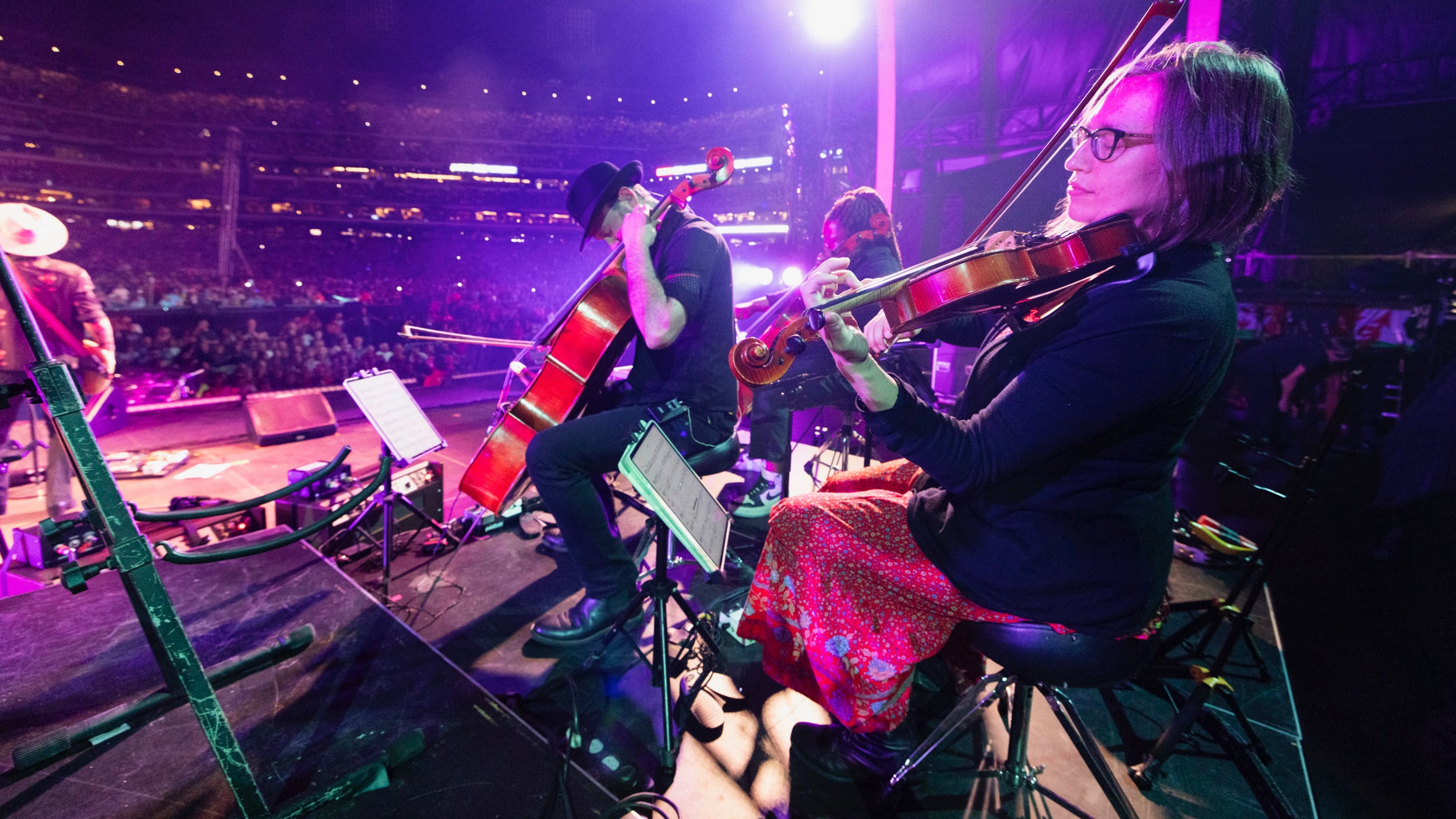Kyleen King may be a world-class musician, but she’s also, as she readily admits, a drag at the after-party.
“I just want to talk about childhood trauma on a Friday night,” she says, laughing. “And people are, like, ‘We’re drinking here. We’re having a good time. Shut up about your problems.’ I don’t belong in a touring environment for that reason.”
Being on the road, however, is one way King has been able to sustain a career as a musician since moving to the Northwest from Nashville in the early ‘00s. The 43-year-old plays violin in Grammy winner Brandi Carlile’s live band and was a member of roots-rockers the Heartless Bastards during their tour in support of 2015′s Restless Ones. Though satisfying creatively, the business side of the music business left King feeling jaded, even before COVID shut it all down for a while.
“The pandemic allowed me time to understand what my identity was outside of music,” she says, enjoying a spot of spring weather at The Fresh Pot on North Mississippi. “I decided mental health was the path for me and it’s going to intersect with music. I didn’t know how, but they’re going to work together.”
It didn’t take long for her to connect her two interests. As she started working her way toward an undergraduate degree in social work at Portland State University, King was approached last November by Musicians Union Local 99 to help head up its newly formed mental health committee. Since then it’s been meeting once a month to brainstorm ideas on how to aid local musicians, including partnering with trade association MusicPortland, to put together a comprehensive directory of mental health care providers in the city.
King is also helping to facilitate, with Thriving Roots Counseling owner Sabrina Sheehy, a support group for musicians, to be held over Zoom starting April 11. “I want this to be an opportunity for people to talk about the hard stuff in a safe environment as a trial for me and [Sabrina],” King says. “Does this work? Is it helpful? What support do you need? Let’s talk about your stuff and let’s find you some support.”
Though the stigma regarding being open about one’s mental health issues has been slowly disappearing from Western culture, there can still be some discomfort in opening up about such matters. For the people King wants to support, it doesn’t help that the public perception is either that they must be doing OK because of the positive effects that music can have on the brain or that musicians have to be fucked up to make great art.
“The profession romanticizes hardship,” King says. “It’s almost an expectation that you’re supposed to be suffering horribly or on something in order to create. I highly disagree. I know what issues we’re coming up against. What we’re turning to to numb out and try to avoid all the hardships. I think I can help address the specifics.”
King has also been witness to some welcome developments, like Live Nation providing counseling services for musicians and members of the road crew at festivals and arena shows. While the underpinning of offering such help is purely economic—conflict between band members or roadies struggling with anxiety can have a not insignificant impact on profits—it is a step in the right direction for a greater wave of support for even those artists who rarely venture out of their local scene.
“It’s a start,” King says of such mental health services. But she knows it’s not nearly enough, especially when it comes to artists who might not get the chance to play at a Live Nation venue like The Gorge or the Hayden Homes Amphitheater in Bend.
“I’m mostly interested in providing this for people who don’t have the resources to afford it,” she continues. “The people on the small-club level are working just as hard. Marginalized communities need a lot of support in fighting the uphill battle of oppression. There’s an opportunity to get a Taylor Swift or Dolly Parton or somebody like that to fund an organization or something to help these smaller-level artists get mental health support that’s accessible and relevant to their experience. There’s totally a way to do this.”
GO: Musicians Support Group online. 2–3:30 pm Thursdays, April 11–May 2. To participate, email Kyleen King at admin@thrivingrootscounseling.com.

